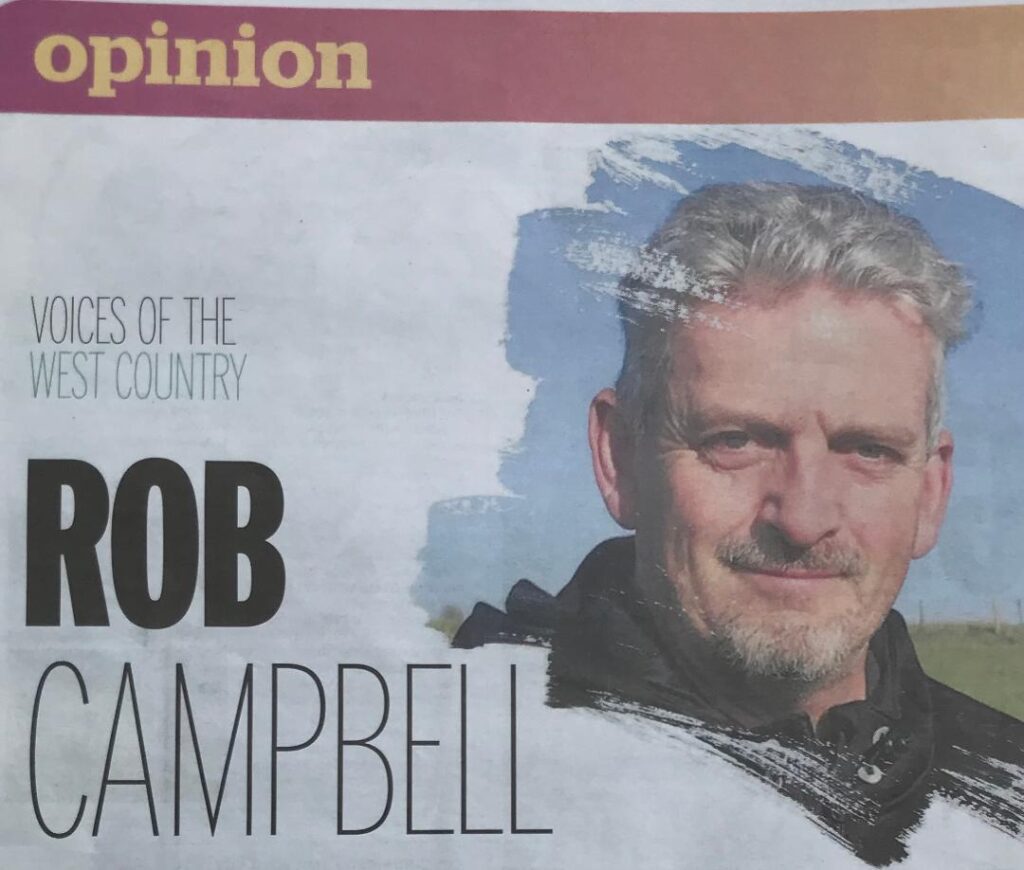Western Daily Press

Up on the high moorland of Penwith as you rise from Penzance towards the far coast is a lost world strewn with the remains of old tin and copper mines.
From the engine sheds looming in the mist to the chimney stacks, saved forever in granite, to the craters shielded by barbed wire to save tourists from vanishing down them.
It’s an eerie place which many have come to know through the Poldark television series, but not in our house. After seeing a clip of the hero Aidan Turner doing manly work with his shirt off, and reading that the nation’s women did a collective swoon at the sight, I banned it.
So our venture onto the moors last week, after visiting family in what seemed in comparison the pulsing metropolis of Truro, was full of surprises.
Best of all was our very own Poldarkian character, who stepped out of the fog as we were pondering the ruins above the mines of Botallack.
A sinewy, tanned, fit chap in his mid-seventies, looking better than one should for that age, he was loitering in wait to chat with interested tourists.
He had worked nearby on one of the last lodes until the 1980s, and told of being lowered 2,000 feet below the surface, with no sound except that of the water being pumped out for fear men might drown in it (some did).
He had loved his mining, understood the geology, enjoyed the company of fellow workers, and it had made him what he was. We were in awe of this living exhibit from a remote world of harsh but honest work.
Then he left us for his home in the village further up the moor, knowing that someone at least appreciated what he used to do and perhaps envied him a little, too.
I wondered if, one day, I might become wizened and wise and lurk outside the yet-to-be-invented Museum of Office Life somewhere around the smart area by Bristol Temple Meads station.
I would, like our new mining friend, be ready to share with visitors my stories of the old days. Women and children would be in awe of the courage and stoicism of my generation; their menfolk would shift uncomfortably in the knowledge that they’d never had such a chance to prove themselves.
It’s hard to imagine now, I’d say. The sound of tapping on keyboards, of receptionists saying I’m just putting you through, the clunk of Twixes tumbling through vending machines.
I’d open the lid of the old laptop under my arm: look, there were all these buttons and you had to press them in a certain order to do work. The training to operate one of these was intense, and could take up to half an hour.
My God, they’d say, and then I’d produce some paperwork from an old briefcase. Spreadsheets, I’d say, getting some out for a look. We had to put numbers in boxes, then more numbers in other boxes, and sort of shake them all about. Nobody knew what they were for.
I’ve also got print outs of policies and procedures from the human resources department, I’d tell them, but maybe that’s for another time.
The conditions were tough, I’d say. We’d get trains to work, standing for up to half an hour, unable to plug our phones in. Those on the verge of breakdowns huddled together in quiet carriages.
Commuting was hungry work, so there was a tradition of stopping for a Greggs sausage and cheese and bean melt, ready for the struggle ahead.
The day would start with a ritual meeting, at which bosses presented things via Powerpoint and everyone nodded. Our only relief was spending half the morning on Amazon but even that could be ruined by receiving a thing called an email, copied to all.
At lunchtime we’d forage for food in places called Wetherspoons, and spend the afternoon working out how to claim for it on expenses. Our only comfort before the day’s end being trays of donuts to celebrate someone’s birthday.
It was dangerous work, too. People would disappear down the cracks when restructures took place, or be hit by P60s. (At this point I’d probably hold their attention by shedding a little tear.)
Then, as you know, came the great pandemic of 2020-2045 and everyone worked at home. End of an era. Hard times but good times.
A woman steps forward. I’m a TV producer, she says, and your story is the one of the most powerful I have ever heard. I want to make a series out of it, with you staring at screens, and striding along platform three as the sun goes down. It’s a deal, I tell her, but I’m not taking my shirt off.